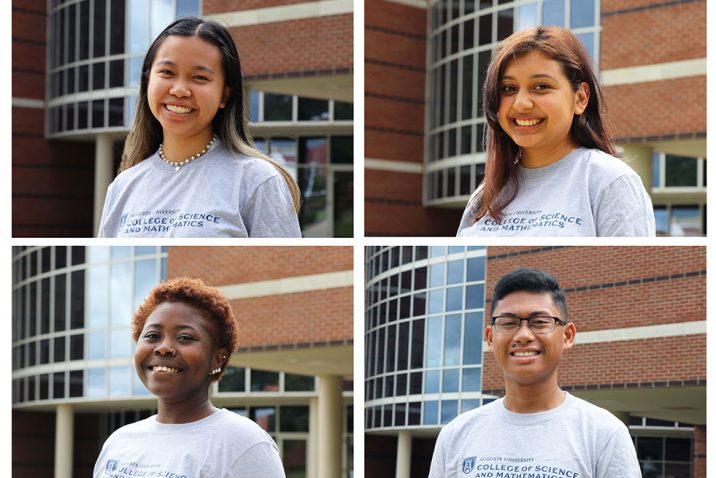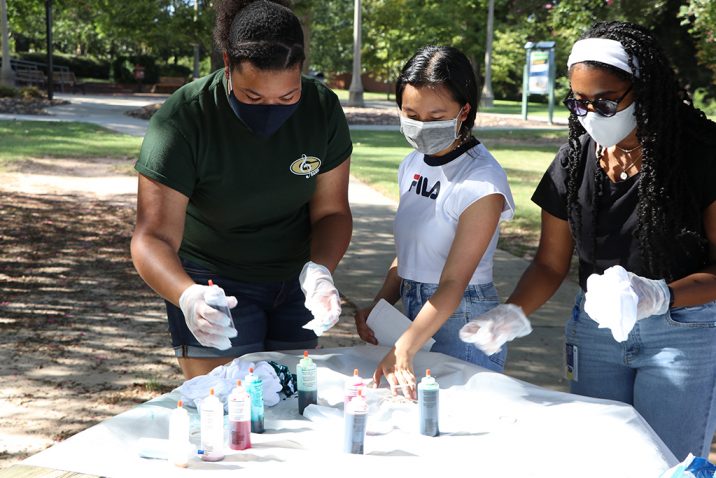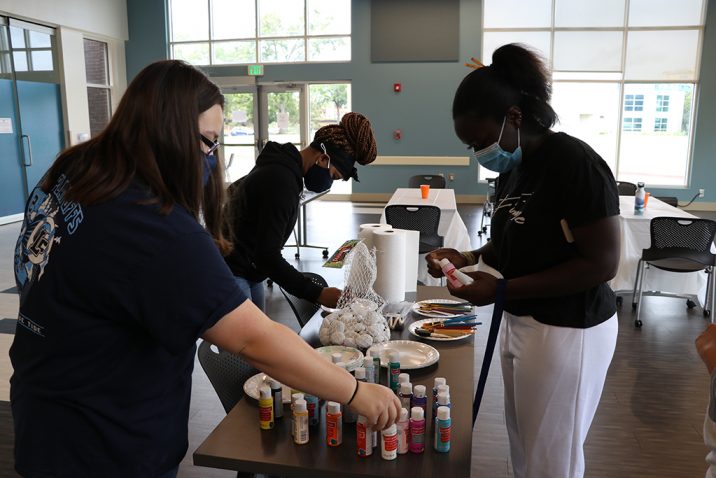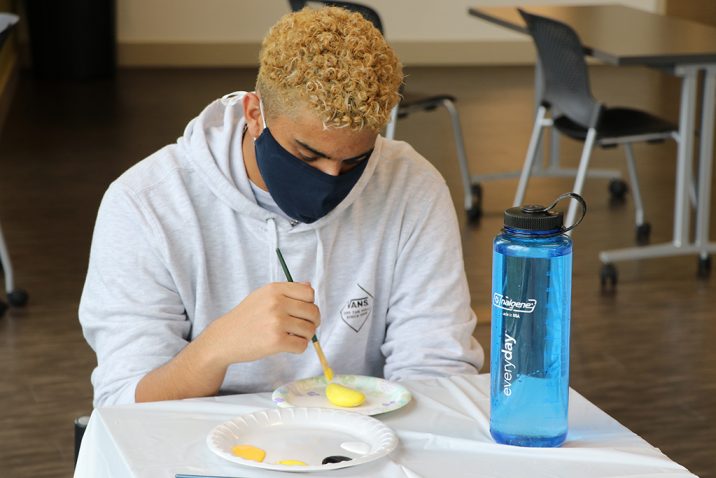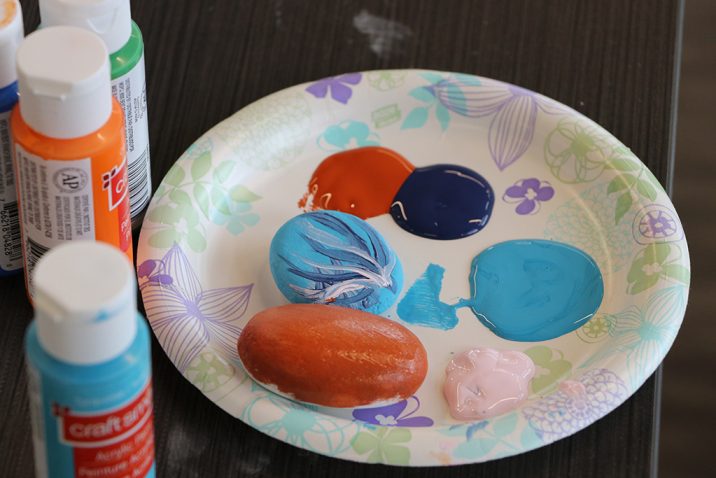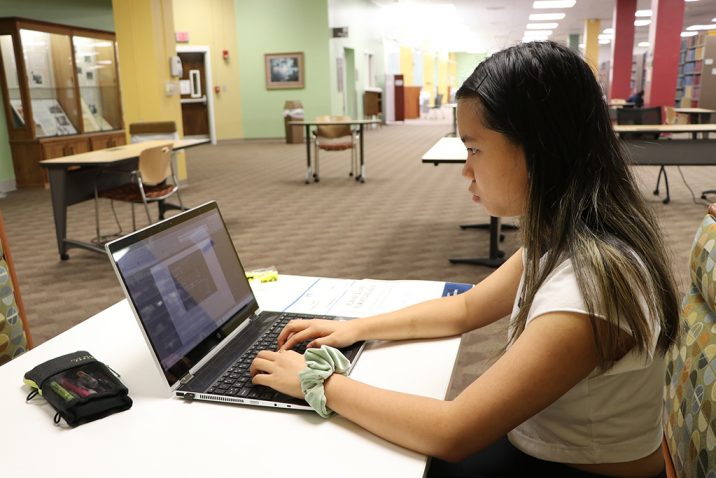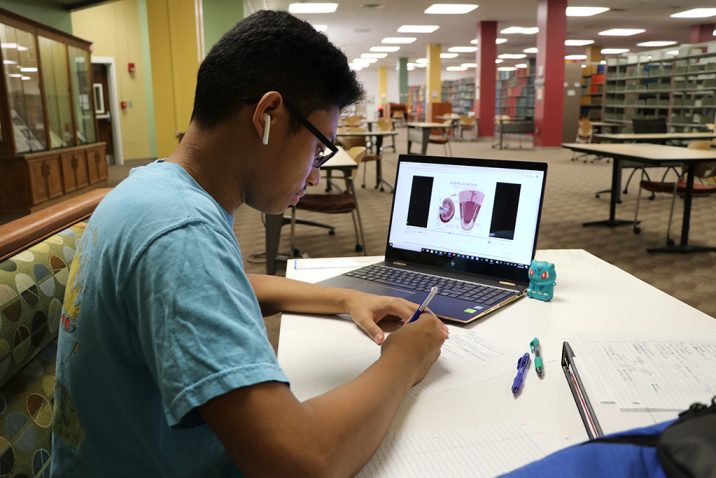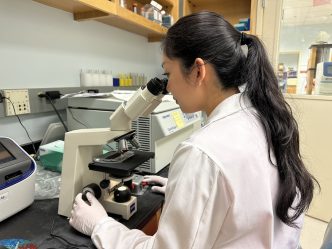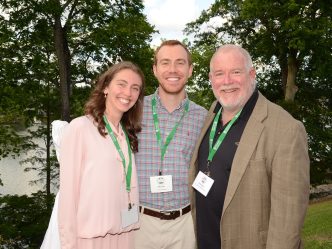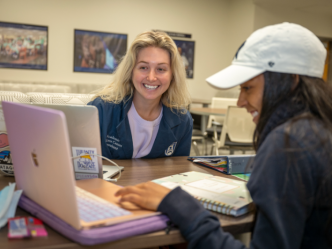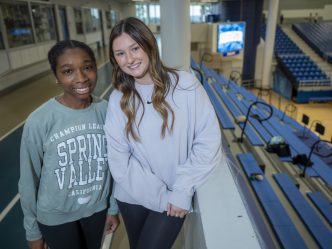The College of Science and Mathematics was the first college at Augusta University that established Living Learning Communities (LLC) in residential university housing to support freshmen science and math majors in making a successful transition during the critical first year of college.
Founded in 2016 through a partnership with the Office of Housing and Residence Life, the college’s LLC provides participants a supportive learning experience in which they live, study, and take introductory science and mathematics classes together.
The LLC is beneficial because it draws together like-minded students who want to succeed and provides a shared, mutually supportive experience. Throughout the five-year history of the program, students who have participated in the LLC have outperformed, on average, their peers academically. They also are retained at AU at a higher rate. What past participants say is that they benefit from the sense of community created in the LLC.
In 2019, the LLC Program Coordinator, Jennifer Bateman, introduced a new element to the program: student ambassadors who serve as mentors for first-year LLC participants. These ambassadors are sophomore students who participated in the program the year prior.
These ambassadors are responsible for planning team-building activities, both academic and social, while serving as mentors for groups of 12-15 freshman students. They provide peer mentorship, which is less intimidating than faculty mentorship to brand new freshmen.
LLC ambassadors are selected each year and are responsible for acclimating new students to college and promoting camaraderie, in addition to helping them succeed academically. Group activities help students connect and support each other in their studies outside of classroom settings.
This academic year, the College of Science and Mathematics LLC ambassadors are sophomores Milca Alfaro, Khrstyn Bais, Milline Nuahn, sophomores majoring in cell and molecular biology, and Juan Reynes, a sophomore chemistry major.
Academic advice from ambassadors
All agreed that one challenge which many students face in their first year of college is the difficulty of their entry-level science classes. Many say they are afraid of not doing well in them.
“One thing I noticed was that most of my freshmen are pretty smart, but the college classes are different than high school classes. In high school, they have class every day and lots of homework, so they may not need to study as much,” Reynes said. “In college, most of the reviewing and studying for class is dependent on them.”
When Nuahn asks the freshmen in her group how their classes are going, she says they’ll usually say something like, “My classes are going good BUT biology …”
The first big test in a science course is often an awakening for students. When students get their results back and see where they’ve not done well, they are encouraged to reflect back on their current study practices and seek advice from others. For those who are not getting the scores they want, Nuahn advises her freshmen to ask their professors for help virtually, even if office hours are not conducted in person anymore. Also, she encourages them to try out different study habits.
“That’s why we have Saturday study sessions,” Nuahn said. “The Academic Success Center and the library really help to host those study sessions.”
Even though no one enjoys studying on the weekends, it is crucial to establish a study routine to get out of that mindset, she said.
“It is okay to feel stressed and, at times, be a bit lazy, but it’s important not to have that feeling for too long because it will get harder to recover,” Alfaro said. “As a student ambassador, I motivate my freshmen to study in a different environment to break their pattern or make a daily checklist to help them keep track and hold themselves accountable.”
Additional challenges from the pandemic
Alfaro said that keeping up with both the virtual and the physical world can be challenging, especially since each professor has different teaching approaches to hybrid instruction.
“There are some professors who remind you every time stuff is due, which is fine; but when you have professors who don’t, you worry about those classes. It can be hard to keep up with all your course commitments,” she said.
Nevertheless, Bais believes that the pandemic is an opportunity to show that “we can adapt to a lot of different situations.” Persistence, she points out, can help us succeed even when circumstances present us with unfamiliar challenges.
Reynes also reflected Bais’ attitude about the value of persistence. He makes sure he stays on track not just academically, but also in preparing himself professionally, despite the disruptions of the pandemic.
“I’m going to take EMT classes this semester,” he said. “Next semester, I’ll be working as an EMT.”
Social challenges met through perseverance
Bais said first-year students also face social changes, such as making new relationships with professors and peers. Although the pandemic has complicated in restricted student engagement, the LLC ambassadors find creative ways to socialize virtually or socialize while enforcing social distancing guidelines about once a month.
For example, Reynes and his group participated in a virtual game of two lies and one truth on Kahoot to get to know each other. Bais hosted a tie-dying event where students shared their experience about their classes and their teachers, exchanged due dates for assignments and midterms, and their aspiration for their education. Alfaro hosted a rock painting session for her group. At first, the students were reticent, as they are new to the program and new to each other. Alfaro went around each table to greet each student and slowly warmed up the interactions.
The LLC is also committed to supporting service-learning experiences. This fall the LLC will be participating in AU’s Days of Service event by writing cards to honor and thank health care heroes working at AU Health.
In collaboration with the Office of Admissions, Bateman will arrange to mail an informational flyer about the LLC to current applicants who are interested in pursuing a science or mathematics major at AU. Application to be part of the LLC is open to students upon their acceptance to Augusta University, declaration of a major within the College of Science and Mathematics, and commitment to live in university housing. For more information about the program, email Jennifer Bateman.
 Augusta University
Augusta University
